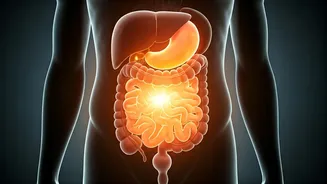The Artery Plaque Problem
Artery plaque, a significant concern in cardiovascular health, poses a major risk. When plaque accumulates in the arteries, it hardens and narrows these
vital pathways, reducing blood flow. This buildup of plaque, often made up of cholesterol, fatty substances, and calcium, can lead to serious health issues, including heart attacks and strokes. The narrowing of the arteries limits the supply of oxygen-rich blood to the heart and other organs. Therefore, it is important to take proactive steps to prevent plaque formation. This proactive approach involves making informed dietary choices that support vascular health and help maintain open, clear arteries. These choices can include incorporating specific drinks known for their heart-healthy properties.
Drink 1: Pomegranate Juice
Pomegranate seed juice stands out as a heart-friendly choice. Studies have shown that pomegranate juice has the ability to combat artery plaque. This juice is rich in antioxidants, which are vital in protecting the arteries from damage caused by free radicals, which are unstable molecules that can contribute to plaque formation. Regular consumption of pomegranate juice has been linked to improved blood flow and reduced blood pressure, two key factors in maintaining a healthy heart. Beyond these benefits, its anti-inflammatory properties further support cardiovascular wellness. Therefore, adding pomegranate juice to your diet could be a delicious step towards a healthier heart.
Drink 2: Green Tea Power
Green tea is another powerful ally in the fight against artery plaque. The high concentration of antioxidants in green tea, particularly catechins, helps in keeping arteries clear and healthy. These antioxidants assist in lowering LDL (bad) cholesterol levels, which play a major role in plaque formation. By consuming green tea regularly, you can benefit from its capacity to relax blood vessels, enhance blood flow, and provide comprehensive support for heart health. For optimal results, brew green tea without adding sugar or other sweeteners. This drink can be a simple, yet impactful, addition to your daily health routine.
Drink 3: Beetroot Juice
Beetroot juice is known for its ability to boost heart health. Beetroot is packed with nitrates, which the body converts into nitric oxide. Nitric oxide helps to dilate blood vessels, leading to lower blood pressure and improved blood flow. This improved blood flow reduces the risk of plaque buildup. Regular intake of beetroot juice can also enhance exercise performance, contributing to overall cardiovascular fitness. Furthermore, beetroot's rich antioxidant content helps protect blood vessels from damage. Integrating beetroot juice into your diet can significantly contribute to better heart health and overall well-being.
Drink 4: Tomato Juice
Tomato juice provides significant heart-healthy benefits. It is rich in lycopene, an antioxidant that has been linked to the reduction of LDL cholesterol and the prevention of artery plaque. Tomato juice also contains other beneficial nutrients, such as potassium and vitamins, that contribute to overall cardiovascular well-being. Potassium helps to manage blood pressure, and these nutrients support healthy blood vessel function. Therefore, including tomato juice in your diet can be a delicious way to enhance heart health and lower the risk of heart-related issues. Ensure you select unsalted varieties to maximize health benefits.
Drink 5: Berry Smoothies
Berry smoothies offer a delicious and health-promoting way to protect your heart. Berries, like strawberries, blueberries, and raspberries, are packed with antioxidants and fiber. Antioxidants help protect against artery damage and the formation of plaque, while fiber aids in managing cholesterol levels. Blend various berries with a bit of water or unsweetened almond milk for a heart-healthy drink. These smoothies can be easily incorporated into your daily routine. By making a berry smoothie a part of your daily intake, you get a tasty and convenient means of supporting heart health and lowering the likelihood of artery plaque buildup.

















